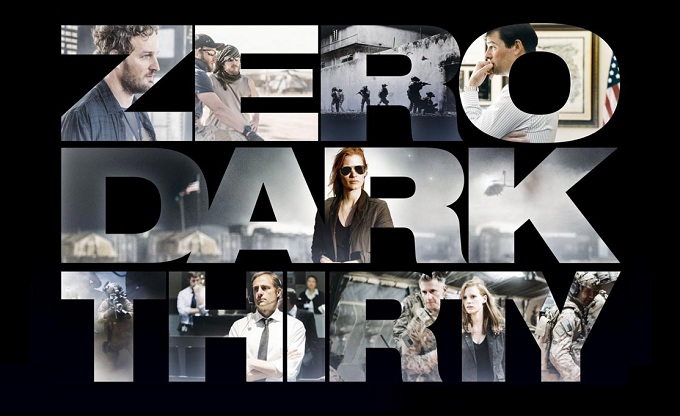Zero Dark Thirty Review

The Plot:
Inspired by actual events a determined CIA agent leads the global hunt for terrorist mastermind Osama Bin laden. She must confront indecisive superiors, well trained terrorists and the harsh realities of brutal interrogations in her quest for justice. Her mission ultimately climaxes in one of the most infamous military assaults in human history.
The Good:
Director Kathryn Bigelow already won an Academy Award for tackling the sensitive subject of the Iraq war in the Hurt Locker, candidly exploring the troubled existence of an American bomb disposal soldier. In Zero Dark Thirty she tackles the main event of the war on terror, delivering a compelling re-enactment of the world’s most notorious manhunt.
Allegedly drawn from intimate sources with the CIA and the American military the script injects a pounding dramatic momentum into the protracted search. Despite audiences being fully aware of the ultimate fate of Osama Bin Laden, the film finally delivers the satisfaction of witnessing exactly how he met his demise. Literally taking audiences inside the final fateful raid on the Pakistan compound where he had eluded international authorities for so many years.
Despite misleading trailers the film shouldn’t be mistaken for simply a gun totting action adventure. Bigelow explores the work, sacrifices and compromises that ultimately facilitated a successful assassination. Thanks to a minimal, angry and intense performance from Oscar nominated star Jessica Chastain; the film avoids being mistaken for a protracted army recruitment ad. Brave directing choices and understated performances from the entire cast help the film easily refute any accusation of sensationalism or of glamourizing the evils of war.
As the film’s focal point, Jessica Chastain channels the same spirit of unflinching commitment in the face of military and moral complexity that epitomized Jeremy Renner’s stoic performance in The Hurt Locker. This allows director Kathryn Bigelow to continue probing politically and emotionally provocative subject matter with a reluctant knife.
The Bad:
Audiences are likely to bring their own political agendas into the cinema and Zero Dark Thirty simply cannot satisfy everyone. It is not a triumphant flag waving salute to American military power. But at the same time it falls short of being a damming condemnation of the atrocities committed by both sides in the ‘war on terror’.
Some will commend the film for avoiding political sermonizing in favour of arresting and emotional storytelling. But others will no doubt criticize the extent the film avoids explicitly addressing the wider issues behind the infamous events depicted. There’s a fine line between giving an audience room to make its own assessments and simply dodging responsibility. That balance is particularly important when a film claims to be an accurate depiction of real life events.
The film’s frequent graphic depiction of CIA agents torturing prisoners has attracted inevitable controversy, particularly because the film rarely if ever verbalizes an opinion on whether such actions are justifiable necessities of war or simply war crimes. Audiences searching for clear cut answers and ideological certainties may be a little dissatisfied with film’s lack of open commentary.
The Ugly Truth:
Though lacking some of the nail biting tension of Bigelow’s previous effort The Hurt Locker, Zero Dark Thirty has an added dimension of fascination due to its depiction of such notorious real life events. Guaranteed to inflame discussion across the globe the film is thought provoking and meticulously well crafted. Its lack of obvious political agenda is probably wise and what remains is a tense credible drama.